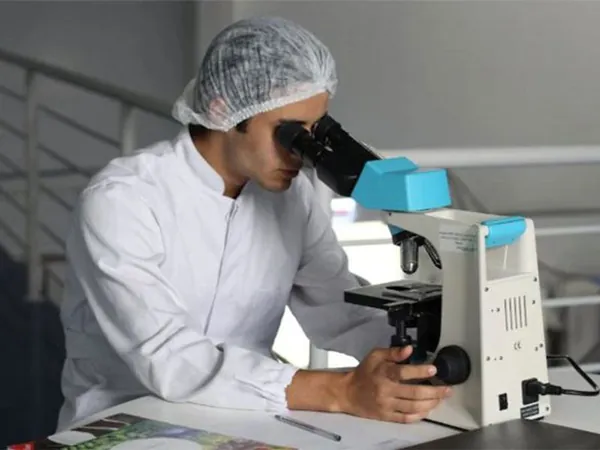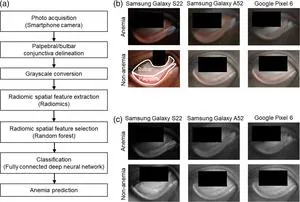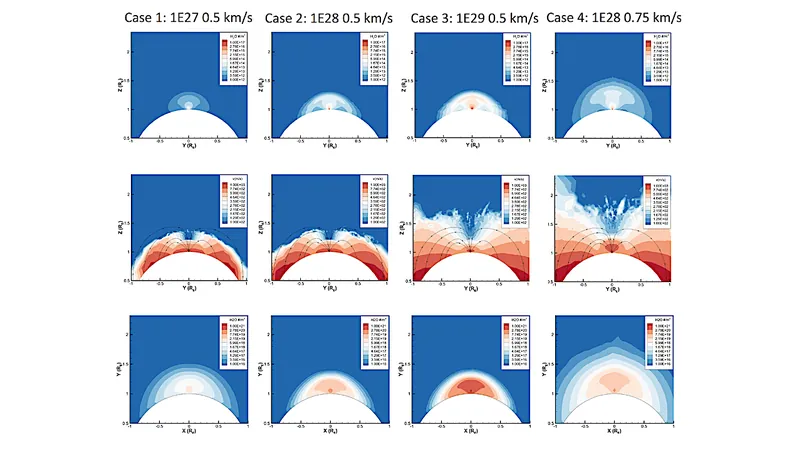
Breakthrough Blood Test Technique Revolutionizes Cancer Monitoring
2025-04-13
Author: Wei
Transforming Cancer Detection with Blood Tests
In a groundbreaking discovery, researchers at Weill Cornell Medicine and the New York Genome Center have developed a game-changing technique for cancer monitoring using blood samples. This innovative, error-corrected method boasts a level of sensitivity and accuracy that far surpasses previous technologies, signaling a significant advance in post-treatment patient monitoring.
The Power of Whole-Genome Sequencing
At the heart of this study lies whole-genome sequencing—a comprehensive DNA analysis approach. By leveraging this advanced technique, researchers are edging closer to routine blood test screenings that could detect cancer at its earliest stages.
The researchers evaluated a promising new sequencing platform from Ultima Genomics, highlighting how its affordability and high data quality allow the detection of even minuscule amounts of circulating tumor DNA.
An Era of Affordable DNA Sequencing
"We’re stepping into a new era of accessible DNA sequencing," says Dr. Dan Landau, senior author of the study. "Our application of whole-genome sequencing techniques would have been deemed impractical just a few years ago. Now, we can harness its power for revolutionary cancer diagnostics."
Liquid Biopsy: The Future of Cancer Care?
Liquid biopsy technology could transform how cancer is diagnosed and monitored. Detecting unique mutational signatures from even trace amounts of tumor DNA has been historically challenging. However, Dr. Landau's team has dedicated the past decade to refining methods that utilize whole-genome sequencing.
In a previous study, they successfully identified advanced melanoma and lung cancer from blood samples without needing tumor sequencing data.
Enhancing Accuracy and Sensitivity
The current study pushed boundaries further: the team showcased how the affordable sequencing platform enables comprehensive whole-genome coverage that would have been financially unfeasible with older technologies.
Utilizing known mutational profiles from patients' tumors, they managed to detect tumor DNA in blood samples at concentrations as low as parts per million.
Collaboration Leads to New Insights
Working with multiple research teams, they proved the method's potential by assessing circulating tumor DNA in patients with bladder cancer and melanoma. Dr. Bishoy M. Faltas commented on how integrating established mutational signatures dramatically improved detection sensitivity.
"This allowed us to track changes in tumor DNA levels post-treatment, indicating disease progression or response to therapy," noted Dr. Alexandre Cheng, the study's lead author.
A Vision for the Future of Cancer Monitoring
Drawing on these promising results, Dr. Landau envisions a future where cancer detection and monitoring are achievable through simple blood tests, fundamentally changing patient care.



 Brasil (PT)
Brasil (PT)
 Canada (EN)
Canada (EN)
 Chile (ES)
Chile (ES)
 Česko (CS)
Česko (CS)
 대한민국 (KO)
대한민국 (KO)
 España (ES)
España (ES)
 France (FR)
France (FR)
 Hong Kong (EN)
Hong Kong (EN)
 Italia (IT)
Italia (IT)
 日本 (JA)
日本 (JA)
 Magyarország (HU)
Magyarország (HU)
 Norge (NO)
Norge (NO)
 Polska (PL)
Polska (PL)
 Schweiz (DE)
Schweiz (DE)
 Singapore (EN)
Singapore (EN)
 Sverige (SV)
Sverige (SV)
 Suomi (FI)
Suomi (FI)
 Türkiye (TR)
Türkiye (TR)
 الإمارات العربية المتحدة (AR)
الإمارات العربية المتحدة (AR)